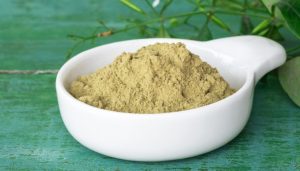
THCA is a lesser-known cannabinoid that has been gaining attention for its potential benefits and unique properties. Unlike THC, which is known for its psychoactive effects, THCA is non-intoxicating in its natural form. However, when THCA is decarboxylated (heated), it transforms into THC, which can produce the familiar “high.” Potent THCA flower strains are an exciting topic in the cannabis community, offering intriguing possibilities for both medicinal and recreational use. Here are some surprising facts about the best thca flower that you might not know.
- High THCA Concentrations: Potent THCA flower strains can contain remarkably high concentrations of the best thca flower, often exceeding 30% in some premium strains. This concentration is a key indicator of their potential potency and effectiveness. Growers and breeders focus on maximizing THCA levels through selective breeding and advanced cultivation techniques.
- Medicinal Benefits: THCA is believed to have various medicinal benefits, including anti-inflammatory, neuroprotective, and antiemetic properties. Research suggests that THCA may help with conditions such as arthritis, nausea, and neurodegenerative diseases, making potent THCA strains valuable for therapeutic use.
- Non-Psychoactive Properties: Unlike THC, THCA does not produce a psychoactive effect when consumed raw. This makes THCA-rich flower strains suitable for those seeking the therapeutic benefits of cannabis without the “high” associated with THC. Users can benefit from THCA’s potential without the cognitive alterations commonly experienced with THC.

- Preservation of Terpenes: Potent THCA strains often preserve a high concentration of terpenes, which contribute to the strain’s aroma and flavor. Terpenes have their therapeutic benefits and can enhance the overall experience of using THCA-rich cannabis by providing additional therapeutic properties.
- Future Research Potential: As interest in cannabinoids like THCA grows, researchers are exploring their full potential. Ongoing studies aim to uncover more about how THCA interacts with the endocannabinoid system and its potential applications in medicine.


